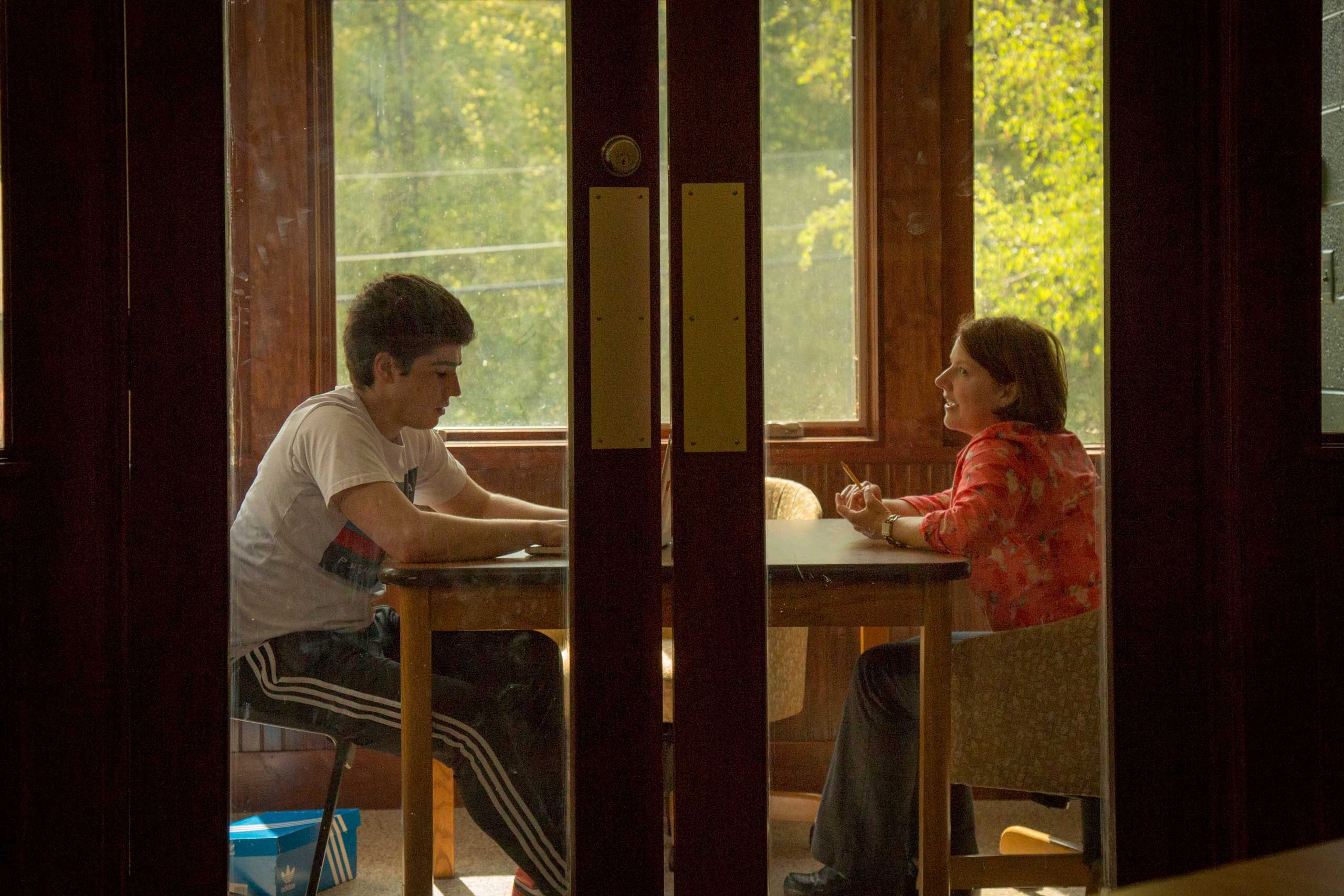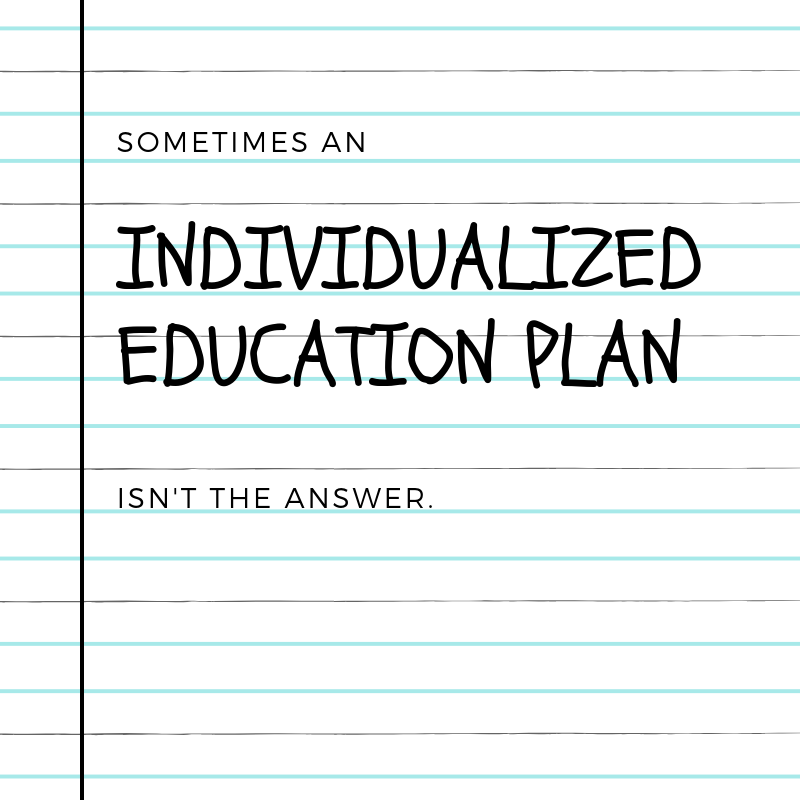
How Answering Five Questions Helped Us Find The Right School Setting For Our Teen with ADHD and School Anxiety
This post was written by a guest blogger who is the parent of a current student at The Leelanau School. Their hope is that writing about their own family’s experiences will help others find a best fit school for their children too.
Parents of kids with educational or emotional needs which are not being met in their current school environment can suffer from ‘information overload’ about options. Focusing on and answering five key questions helped us navigate to a successful solution.
A Thicket of Advice
As early as age 2 or 3, we started to pick-up on challenges with our child’s coping abilities in certain situations. We went to the usual resources – preschool teachers and our doctor. We soon discovered that what we were experiencing were beyond what ‘generalists’ could advise and so we began working with a variety of specialists including: educational specialists, psychiatrists, and psychologists.
While all of these professionals strove to help, it became increasingly difficult to get a handle on what our child’s needs were and which solutions made the most sense. Instead of feeling that we were making progress and narrowing down the possible paths forward, we faced a kaleidoscope of suggestions that seemed to often depend upon the perspective of each professional: educational specialists focusing on learning modalities, psychiatrist tending to focus on pharmacological solutions, psychologists tending to focus on developmental issues, etc.
While continuing to work with various professionals we did our own online searching to help educate ourselves and to look for additional alternative solutions. We quickly found that searching for solutions for a child with ADHD and school/social anxiety is not like shopping for a new car online. There aren’t well-developed, information-rich website and apps that walk you through the ‘buying process’ and helpfully point you to a handful of solutions that the latest supercomputer algorithm has determined best suit your situation.
For starters, solutions and insights offered on the subjects of ADHD and social anxiety span a great range of sources including:
ARTICLES AND BLOGS ON:
- educational approaches and techniques
- psychological analysis
- legal – such as how to getting more support from local schools
PROMOTIONS FOR:
- online and home schooling or tutoring solutions
- support products – like reminder books, wristbands, and school organizers
- alternative schools: including private day and boarding schools
The information further fragments into academic versus popularly crafted information, sales versus informational. A broad set of additional/alternative related psychological and educational issues also come up such as learning disabilities, autism spectrum disorder (ASD), dyslexia, etc.
FIVE QUESTIONS TO HELP FOCUS THE SEARCH

We found our way to a good educational and emotional setting for our teen by answering five key questions. The following is based on my personal experience as a parent of a child with ADHD and school anxiety. I’m not a doctor, or making any professional recommendations.
1) WHAT UNDERLYING PHYSICAL ISSUES MIGHT BE INVOLVED?
All children, but particularly those in their pre-verbal years, express themselves in a variety of ways that can be hard to interpret. For example, our child had severe myopia (nearsidedness) from an early age, which lead to a lot of frustration and anger – and these emotional expressions were initially interrupted as the ‘root cause/condition’ to be addressed, but which in the end seem to have been a symptom of their difficulty seeing/moving/interacting.
TAKE AWAY: Try and understand any physical issues a child may have and strive to understand what the child may be trying to express.
2) WHAT IS THE PSYCHOLOGICAL AND/OR LEARNING DIAGNOSIS?
We had a battery of psychological/learning tests conducted at a local university affiliated medical center. From this we did get indications that ADHD was an underlying cause, but this was not immediately accepted by all involved. For example, our child’s range of ‘symptoms’ were interpreted at different times and by different professional as ‘anger issues,’ ‘ADHD,’ and ‘learning/developmental issues.’ Over time and through trial and error we seemed to settle on ADHD as the main diagnosis that seemed to be driving the other symptoms.
TAKE AWAY: Don’t leap to the first diagnosis presented about your child’s psychology/educational diagnosis. Seek a variety of opinions. Stay open to reinterpreting what might be the core conditions when new information or behavior becomes available.
3) TO MEDICATE OR NOT TO MEDICATE
ADHD and anxiety (including school induced anxiety) have well established medications to use as treatments. We initially resisted medications, because we didn’t want to subject our child to the potential side effects, and also we had some educators and professionals advising us that it wasn’t needed. As our son progressed through school, the demands grew and it became increasingly clear that we needed to try something more, and medications seemed like the most promising option. Having made the decision to use mediation, however, introduced a whole new set of complexities: the growing range of medication options, the lag in effectiveness in some medications, and interactions and side effects. In the end, we did settle on some medications that seemed to address the immediate issues, and helped our child progress in school and develop coping skills. Looking back, part of the medical based solution is just helping getting to an age when they start to grow out of some of the challenges, without falling behind in school when waiting for this to happen.
TAKE AWAY: The decision to medicate a child is a serious one that deserves careful consideration, but it’s also not something that parents should reflexively reject. Ignoring the issue of whether a child can benefit from medication doesn’t make the issue go away.
4) WHAT IS THE RIGHT BALANCE BETWEEN SUPPORT VERSUS INDEPENDENCE?
The process of growing independence and separation of a child and parent can be complicated when the child is dealing with ADHD and/or Anxiety. We definitely felt the need to intervene with our child’steachers and also help navigate social situations. While this support seemed to help at the time, it also meant that we were nervous about where and when to step back, which became a particular issue for us as they grew older – into junior high and high school ages. At that age, most teens are starting to show growing independence, making their own arrangements with friends, choosing activities, etc. In the case of our child with ADHD and anxiety, we were constantly torn between, on the one hand, continuing to step in and, on the other hand, trusting themto strike out on their own, even if it meant ‘failing, so they could learn.’ In our case, we addressed this issue in part by having our teen attend a boarding high school – The Leelanau School – which provided a great deal of support, but at the same time also meant they were really much more independent from us.
TAKE AWAY: Sometimes it feels like a full time job to help keep our children on track and deal with the impediments that keep cropping up – insensitive teachers, difficult social situations, etc. We found the right boarding school that encouraged a level of independence from us, without as much fear that if we didn’t ‘step in – nobody would.’
5) IS THE CURRENT/LOCAL SCHOOL PART OF THE SOLUTION OR PART OF THE PROBLEM?
We are lucky to live in a district with good public schools that provided robust IEP (Individualized Educational Plan) support. The support the school provided, however, became increasingly insufficient for what our child needed, while at the same time it became increasingly intrusive. Dedicated or shared additional staff members providing support in the classroom stopped being seen by our child as a natural part of the class and were increasingly seen as stigmatizing them as ‘special needs.’ Also, teachers were not uniformly supportive of the IEP accommodations: I recall one parent-teacher meeting where a teacher suggested that ‘if your child would just pay a little more attention, they would be able to do much better in class.’ I felt like screaming – ‘have you even read through the IEP accommodations?’

By junior high, we’d decided that the public schools in our area were not the best solution for our child. In fact, they were becoming part of the problem, increasingly tracking our child towards a ‘special needs’ setting, even while he was well above average in intelligence and had many other gifts such as creativity, etc.
TAKE AWAY: For us, we had to face the fact that the public schools in our area – which had served our other children well – had become part of the problem. Once we acknowledged this, we were able to start a serious search for alternatives and ended up at a school better situated and resourced to suit our teen’s needs – The Leelanau School.
Favorite Blog Posts Of 2019 | The Leelanau School
[…] How Answering Five Questions Helped Us Find The Right School For Our Teen With ADHD and School Anxie… […]